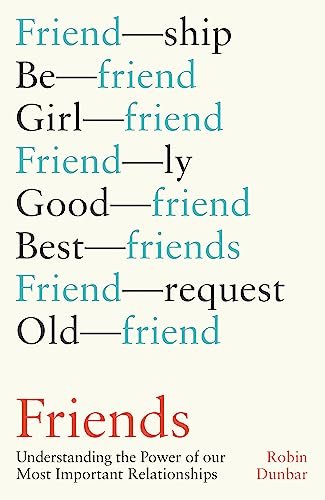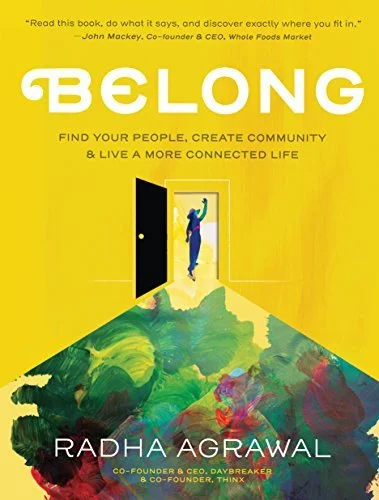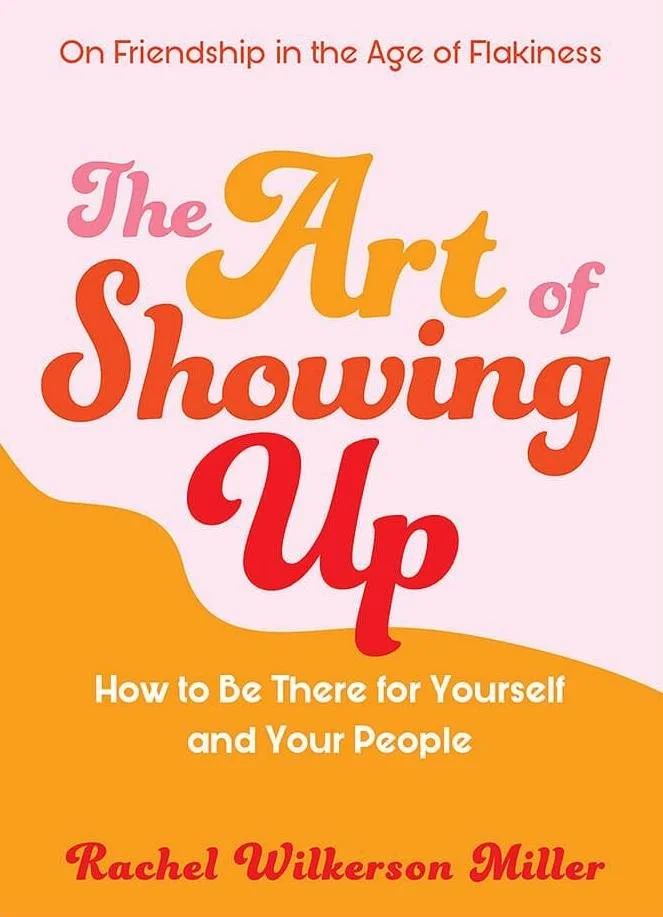Books about friendship for adults
A niche on the rise
When I first started researching and writing We Should Get Together: The Secret to Cultivating Better Friendships in 2015, there weren’t that many books on adult friendship to be found. In fact, when I asked a local bookstore employee to point me in the direction of their friendship books, they told me that they didn’t have a friendship section or any books like that!
I released my book on January 4th 2020, and in the ensuing years, the topic of adult friendship has blown up. New books about friendship for adults are coming out all the time, and it seems like another article or essay about friendship is popping up every 17 seconds.
So today we’re digging into one of my favorite topics: books about friendship for adults. Not only am I a lifelong book nerd, I also wrote a book about adult friendship, and I love making recommendations, so welcome to my wonderland. 💁🏾♀️
All of the books below will give you fresh perspectives to approach your friendships during adulthood, while also helping you boost your skills at making and keeping friends. Since it can be hard to tell what a book will cover solely based on its cover, I included a short blurb about each book so you have an idea about what you’re getting into. You can also view this full list and many more at my Bookshop affiliate shop.
Click on any book cover to check pricing and availability on Amazon.
In We Should Get Together: The Secret to Cultivating Better Friendships, Kat Vellos explains the four biggest barriers to successful adult friendships and how to overcome all of them. The book is a beautiful balance of evidence-based research, relatable stories, and humorous illustrations that make this a delight to read. Applicable for all genders; queer author.
In Together: The Healing Power of Human Connection in a Sometimes Lonely World, US Surgeon General Vivek H. Murthy demonstrates how loneliness is affecting not only our health, but also how our children experience school, how we perform in the workplace, and the sense of division and polarization in our society.
In Friends: Understanding the Power of our Most Important Relationships, world-renowned psychologist Robin Dunbar (founder of Dunbar's number) explains the complex psychological and behavioural mechanisms that underpin friendships and make them possible. Bursting with research studies and relatable examples, this is one of my absolutely favorite books about friendship for adults.
In The Art of Gathering: How We Meet and Why It Matters, Priya Parker argues that the gatherings in our lives are lackluster and unproductive--which they don't have to be. She sets forth a human-centered approach to gathering that will help everyone create meaningful, memorable experiences, large and small, for work and for play.
In Friendships Don’t Just Happen: The Guide to Creating a Meaningful Circle of Girlfriends!, Shasta Nelson explains how to create the five different levels of friendships or Circles of Connectedness, that women—no matter their age or relationship status—are longing for.
In Frientimacy: How to Deepen Friendships for Lifelong Health and Happiness, Shasta Nelson, founder of girlfriendcircles.com, writes specifically for a women-identified audience whom she encourages to reject the impulse to pull away from friendships that aren’t instantly and constantly gratifying. Instead, she shows how dedication and commitment can help you create more satisfying bonds.
In How We Show Up, Mia Birdsong shows that what separates us isn't only the ever-present injustices built around race, class, gender, values, and beliefs, but also our denial of our interdependence and need for belonging. This book will inspire you to find strength, safety, and support in vulnerability, generosity, asking for help, and being accountable.
In We Need to Hang Out: A Memoir of Making Friends, Billy Baker embarks on a 40-something mission to revive friendships from his past. From leading a treasure hunt with his old college crew to starting a frat house for middle-aged guys in his neighborhood, Baker experiments with ways to keep in touch with his friends no matter how hectic their lives are.
In Friendship in the Age of Loneliness: An Optimist's Guide to Connection, Adam "Smiley" Poswolsky offers a sunny and inspirational guide for friendship built on a bountiful supply of stories about people who are doing friendship right and reaping beautiful benefits as a result.
In Platonic: How the Science of Attachment Can Help You Make—and Keep—Friends, Marisa Franco explains that to make and keep friends you must understand your attachment style—secure, anxious, or avoidant. Understanding your attachment style can help you understand what’s working or not working in your friendships.
In Big Friendship: How We Keep Each Other Close, Aminatou Sow and Ann Friedman tell the story of their equally messy and life-affirming Big Friendship in this honest and hilarious book that chronicles their first decade in one another’s lives, including the joys and the pitfalls.
In Belong: Find Your People, Create Community, and Live a More Connected Life, Radha Agrawal uses charts, doodles, quizzes, and a casual friendly vibe to help you clarify what kinds of groups you want to belong to and figure out how to tap into them.
In Radical Friendship: Seven Ways to Love Yourself and Find Your People in an Unjust World, meditation teacher Kate Johnson encourages the reader to ground their friendship endeavors in the Buddha’s teachings on spiritual friendship. The book provides seven ways to embody your values in your friendships and each chapter ends with a meditation or reflection activity.
In The Art of Showing Up: How to Be There for Yourself and Your People, Rachel Wilkerson Miller explains why you need to emphasize self-care, end toxic friendships, ask for help, and support your friends. Readers note its chatty conversational tone and particular usefulness for teens or young adults.
In Friendship: The Evolution, Biology, and Extraordinary Power of Life's Fundamental Bond, Lydia Denworth unravels the biological, psychological, and evolutionary foundations of friendship, from biology to neuroscience. She shows the science of how friendship is reflected in our brain waves, detectable in our genomes, and capable of strengthening our cardiovascular and immune systems.
In Find Your People, Jennie Allen uses an extroverted Christian perspective to tell readers how to build a sense of community (and this is something you can’t tell from the cover — it’s super religious.) Many reviewers on Amazon said they read this with their Bible study group and appreciated the heavily religious perspective. If you’re into that, you might like this book.
Bonus fiction pick: In the novel Tomorrow and Tomorrow and Tomorrow, Gabrielle Zevin tells the tale of Sam and Sadie—two college friends who design a video game together. Their journey spans multiple decades and two coasts, and their creative collaboration brings them a dizzying whirlwind of highs and lows. This book is the hot new pick for summer 2023.
A niche on the rise
I’m really happy to see that the topic is claiming more attention in the cultural zeitgeist, because we really need to turn the loneliness epidemic around!
As more books about friendship for adults come out, I’ll be updating this post. If you have a recommendation or a book you’d like me to consider adding , reach out on my contact form. And if you’d like to receive bite-sized bits of friendship advice sprinkled into your inbox once a week, subscribe to my free newsletter.

















